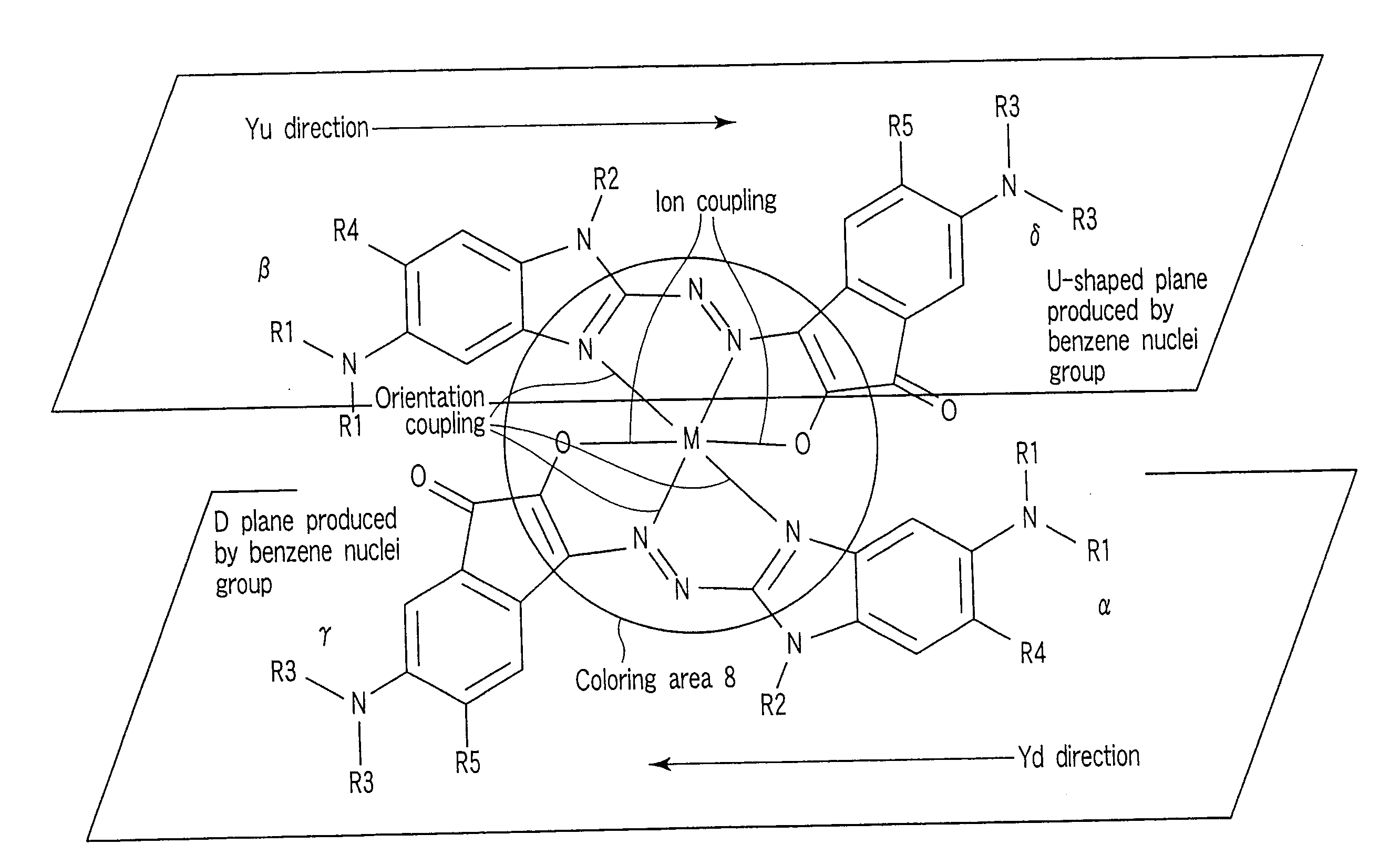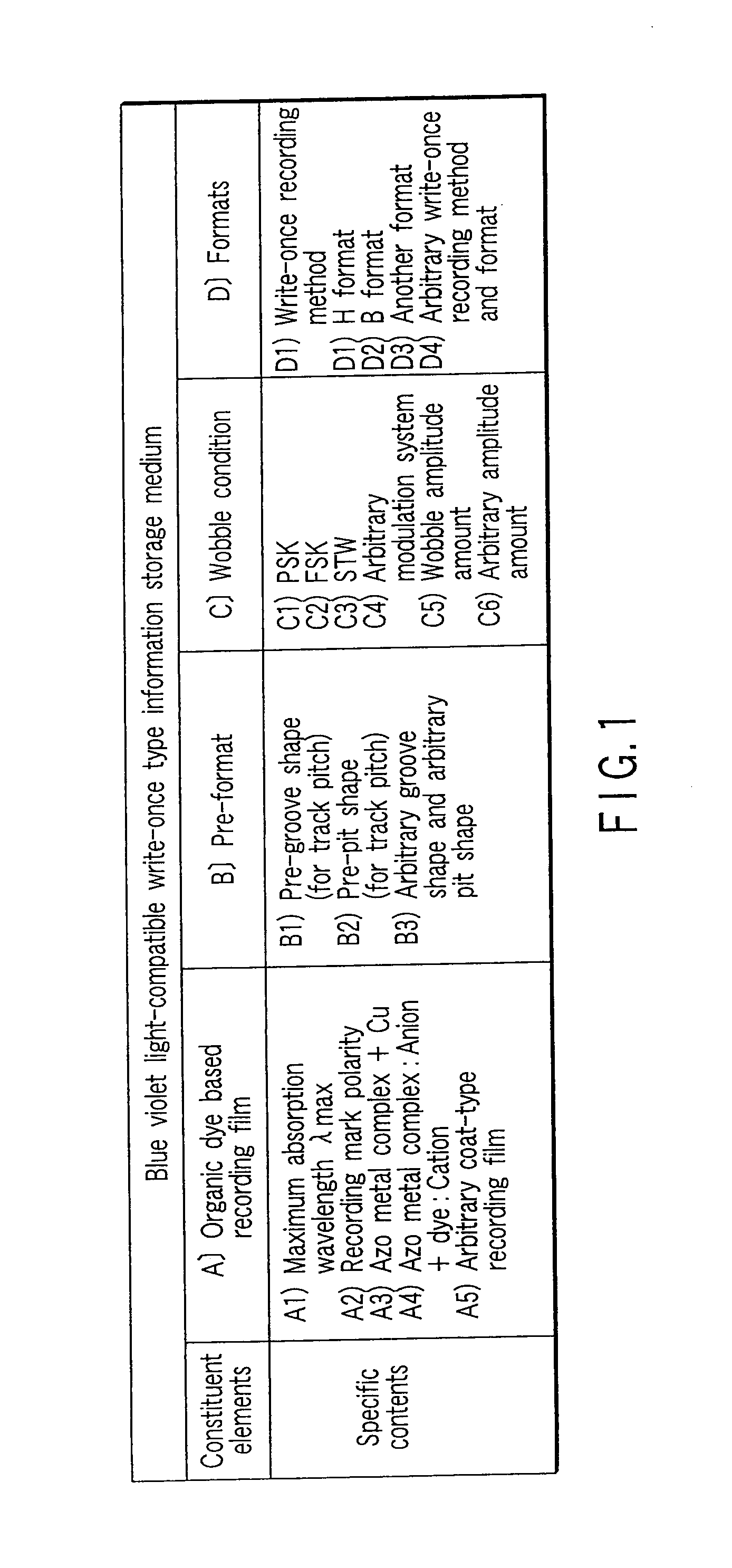Storage medium, reproducing method, and recording method
a technology of reproducing method and recording method, which is applied in the field of storage medium, reproducing method, and recording method, can solve the problems of inability to carry out recording/reproduction with light of 620 nm or less in wavelength, conventional information storage medium using organic dye material, and inability to achieve high-speed recording, improve recording sensitivity, and high density
- Summary
- Abstract
- Description
- Claims
- Application Information
AI Technical Summary
Benefits of technology
Problems solved by technology
Method used
Image
Examples
Embodiment Construction
[0126]Various embodiments according to the invention will be described hereinafter with reference to the accompanying drawings. In general, according to one embodiment of the invention, a write-once type information storage medium comprises a recording layer which is formed by mixing a plurality of organic dye based recording materials whose molecular weights are different from each other, and wherein a mixture ratio of organic dye based recording materials whose molecular weight is small is larger than a mixture ratio of organic dye based recording materials whose molecular weight is large.
[0127]Hereinafter, embodiments of a recording medium and a method for recording and reproducing the recording medium according to the invention will be described with reference to the accompanying drawings.
SUMMARY OF CHARACTERISTICS AND ADVANTAGEOUS EFFECT OF THE INVENTION
[0128]1) Relationship between track pitch / bit pitch and optimal recording power:
[0129]Conventionally, in the case of a princip...
PUM
| Property | Measurement | Unit |
|---|---|---|
| molecular weights | aaaaa | aaaaa |
| molecular weight | aaaaa | aaaaa |
Abstract
Description
Claims
Application Information
 Login to View More
Login to View More - R&D
- Intellectual Property
- Life Sciences
- Materials
- Tech Scout
- Unparalleled Data Quality
- Higher Quality Content
- 60% Fewer Hallucinations
Browse by: Latest US Patents, China's latest patents, Technical Efficacy Thesaurus, Application Domain, Technology Topic, Popular Technical Reports.
© 2025 PatSnap. All rights reserved.Legal|Privacy policy|Modern Slavery Act Transparency Statement|Sitemap|About US| Contact US: help@patsnap.com



